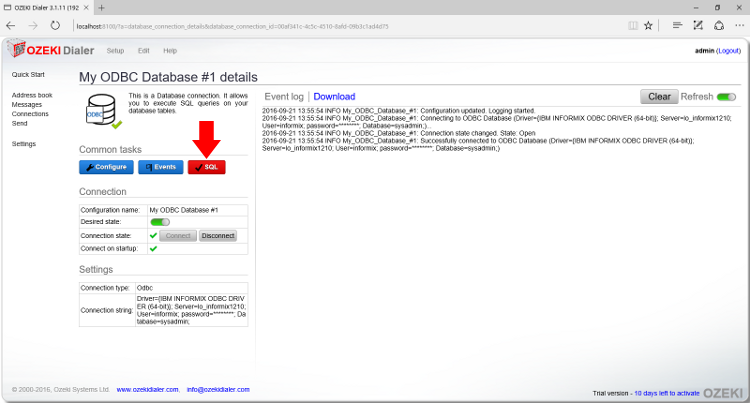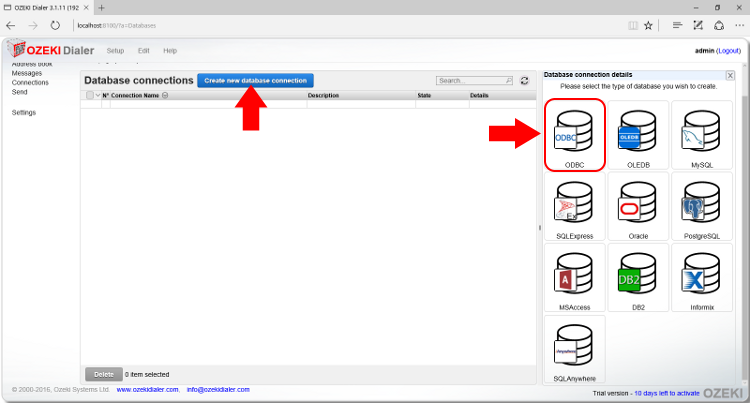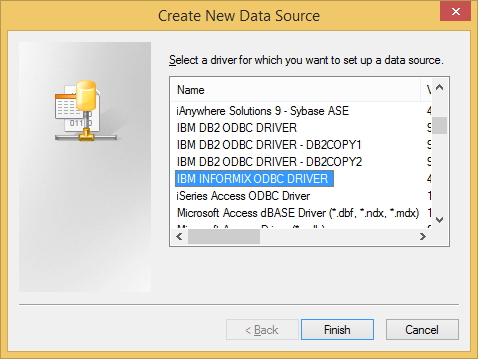
I'm sorry you explanation about "old" version OLE DB does not cut it. Please let us know if we can help your team with guidance on developing ODBC destination components. So it's inaccurate to speculate that Integration Services is trying to force everyone to use SQL Server. Other companies make providers for MySql, SqlBase, Pervasive, etc.all usable with the Integration Services OLE DB destination. Microsoft itself provides OLE DB Providers (and managed providers) for Oracle and DB2, and third-party companies like DataDirect extend OLE DB support to include Sybase and Informix. In addition to SQL Server, we provide Excel and flat file destinations, along with the general-purpose OLE DB destination. You're being unfairly harsh in your suspicion that we only want customers to save data into SQL Server. But you're right, this support is not built into the product in a prepackaged ODBC destination. To split hairs, let me just reiterate that one can use ODBC as a destination with minimal custom coding. Do you remember which topic or topics you found this information in? " As a member of the documentation team, I want to fix this error if I can find it. You're reporting that " The documentation says it's there. I will forward your comments just to make sure that they're noticed. I regret that you received inaccurate information from one of our TechEd presenters. Well, I see more clearly now where you're coming from. I'm just surprised that none is screaming about it yet. In my eyes it pushes the product to totally different (lower) level - if DTS's where as one of the 3-4 ETL tools - the SSIS is going to be just an add-on to SQL server, which is a pity. Basically, what they say is - use our great SSIS product (and it is very good indeed) but you may only use it to put in OUR SQL Server (which is also a very good product). I like Microsoft - but this is a mistake - this shows MS in this evil light. And no – the custom work will not cut it. Imagine my disappointement when I found out that this is not available. The documentation says it's there and I was pulling my hair looking for the thing.

Informix odbc cast money full#
I spent several full days trying to figure it out. I broght it home to my linux/java coworkers as greatest thing ever. I even spoke to one of the two main guys on the team and specifically asked about using MaxDB as a destination and he said: "No problem - just use ODBC". I was at this year TechEd and they painted SSIS as the greatest thing ever and independent product from SQL Server. The above comments directed to MS design team. Public Overrides Sub ReleaseConnections() Public Overrides Sub MyAddressInput_ProcessInputRow(ByVal Row As MyAddressInputBuffer) SqlCmd = New SqlCommand("INSERT INTO Person.Address2(AddressID, City) " & sqlConn) SqlConn = CType(connMgr.AcquireConnection(Nothing), SqlConnection)

Public Overrides Sub AcquireConnections(ByVal Transaction As Object)ĬonnMgr = Me.Connections.MyADONETConnectionManager Sample ADO.NET Destination using the Script component, from the BOL topic " Creating a Destination with the Script Component" With a couple modifications to use an ODBC Connection Manager instead, and to adjust the Command object for your destination and its columns, you're good to go.
Informix odbc cast money code#
To save you the time of looking it up in BOL, I'm going to paste below the teensy amount of code required to create a simple ADO.NET destination component by using the Script component.

In the meantime I encourage you to review the Script component as an interim option. Perhaps in the near future a custom third-party component will be available for this purpose. Copying a locale file is mostly straight-forward, but you need to consider what will happen if that's not available.Integration Services does not come with built-in support for ODBC destinations. If the relevant file is in the ILS, then that's simple. Report a problem to IBM Informix Tech Support, requesting the file for gls/lc11/en_us/016c.lco. However, be aware that the French and German locales are different it will matter which you choose.

You'd probably want to edit the LANGUAGE and TERRITORY lines. This has many extra locales in it it might have en_us.364 (but no promises).Īnother is to try copying an existing locale (maybe gls/lc11/fr_fr/016c.lco or gls/lc11/de_de/016c.lco to gls/lc11/en_us/016c.lco. One is to try downloading the ILS - International Language Supplement. Thus, you can have de_de.364 or es_es.364 or fr_fr.364 or pl_pl.364 but you can't have en_us.364. For better or worse (and mostly worse), although some of the files necessary to support en_us.364 are present, the file needed in lc11/en_us is not present.


 0 kommentar(er)
0 kommentar(er)
